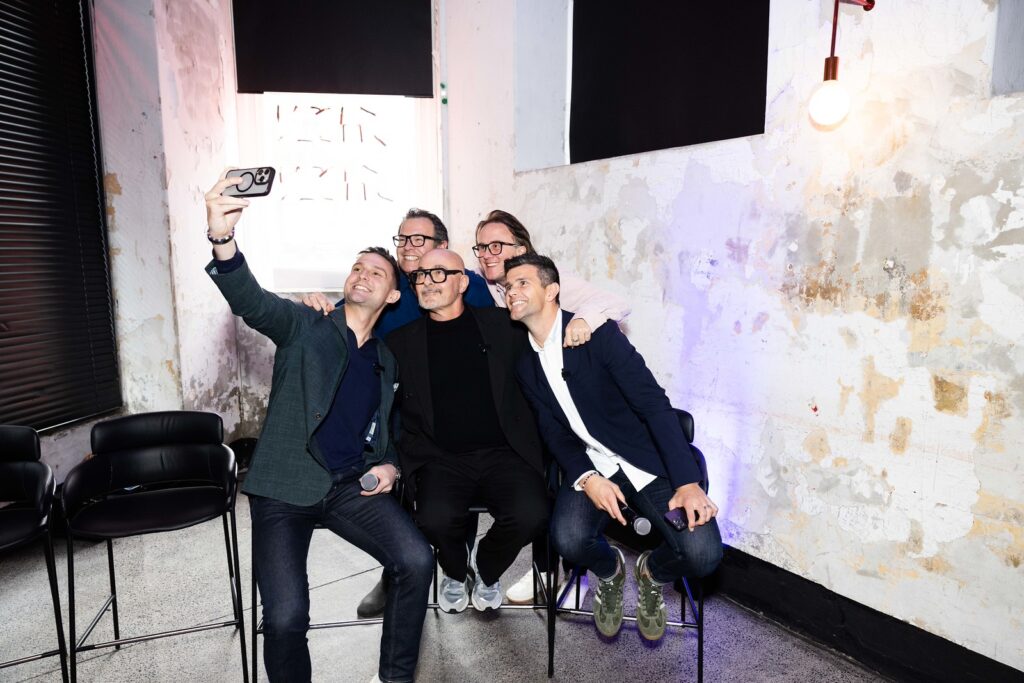IF YOU’RE READING this because the headline caught your attention, then please allow me to elaborate on those few words. The truth is that it’s not just “you don’t need to be” happy all the time, but that “you can’t be and shouldn’t ever expect to be” happy all the time.
My byline here is Dr Tim Sharp because, not surprisingly, that’s my name. But in my professional life I’m sometimes known as Dr Happy, and as the Chief Happiness Officer of The Happiness Institute, I know a thing or two about happiness!
I started using that name after I made the shift, quite a few years ago now, from the more traditional “clinical psychology” to what became known as “positive psychology”. In short, my career followed the trajectory that psychology more generally was heading in whereby the “old school” focus on fixing distress and disfunction was being replaced by a newer approach based on fostering and developing thriving and flourishing.
As I began to talk less about stress, depression and anxiety, and more about happiness and success, a colleague at the time jokingly called me Dr Happy. But I was quite reluctant to adopt this moniker because (1) I thought it was funny but absurd, (2) I had a good reputation at the time and I thought no one would take me seriously if I changed my name to this, and (3) I wasn’t, personally, someone who was very happy, certainly not all the time!
In fact, the reality was I was a pretty unhappy person, and had been for many years. For most of my adult life, in fact, I’d experienced (and I continue to experience) quite poor mental health, most notably in the form of depression and anxiety. Over the years I’d gone from denying the reality of my misery, to fighting it, trying to fix that which I deemed to be broken within me that I thought was causing it, giving in to the whole meaningless of life and at times, trying to overcome everything by focusing exclusively on creating happiness and positivity as best I could.
At times I’ve thought I’d never ever be happy. At other times I thought I should always only be happy. But finally, more recently, I’ve gained some wisdom and come to realise that life necessarily involves both. Which is how I ended up writing my latest book, Lost & Found: how to wander your way to a better life.
In very simple terms, this book is about how I’ve come to terms with the fact that along with millions of others around the world, my life will always include periods of (sometimes severe) unhappiness; times when I feel lost and confused, messy and even dirty. Trying to fight or deny this quite simply has never and will never work. Why? Because for me especially, and for everyone to some extent, those unpleasant emotions are normal and appropriate, they’re part of who I am.
Trying to deny this just made me feel more lost and less authentic, whereas facing up to them and accepting them allowed me to be me, all of me, and although that’s hard at times it’s also incredibly liberating. As strange as it might sound, letting myself be miserable at times frees me up to be much happier at other times because to be perfectly frank, it’s more real.
Think about it in another way. Imagine never ever feeling stressed or anxious, sad or angry. That would be bizarre, even unhealthy. All emotions are, in their own way, appropriate and potentially even helpful. Fear, for example, protects us from danger and from taking unnecessary risks. Other unpleasant emotions send other important messages.
Ultimately, then, I’ve come to learn that all emotions are part of living an emotionally healthy life. You can’t be happy all the time and you shouldn’t want to be. From those so-called negative emotions can come growth, just as we learn from failure and find excitement on the other side of fear.
In the same way, although we all enjoy the clarity that comes from setting and working towards clear goals, it’s important we don’t lose sight of the unpredictable benefits that can come from spontaneity, from taking a random turn, from allowing ourselves to get lost and from even seeking out, actively, opportunities to do the unknown.
Because it really is when we’re lost, that we can find those glorious glimmers of a golden life we’d never, ever, been able to imagine!
Lost & Found: how to wander your way to a better life by Dr Tim Sharp is out now.
Related:
















